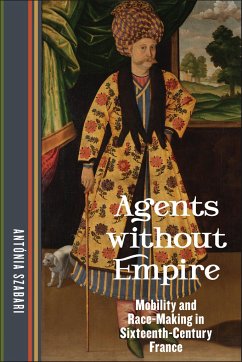"An admirable work of scholarship. Agents without Empire offers a multidimensional account of the construction of race in early modern France by addressing how French authors navigate the boundaries of the human."-- Rebecca Zorach, Northwestern University "Szabari's book will be a welcome addition to early modern studies and will help scholars of race, nation, gender, and early modernity reconsider the very concept of agency."--Todd Reeser, University of Pittsburgh It is well known that Renaissance culture gave an empowering role to the individual and thereby to agency. But how does race factor into this culture of empowerment? Canonical French authors like Rabelais and Montaigne have been celebrated for their flexible worldviews and interest in the difference of non-French cultures both inside and outside of Europe. As a result, this period in French cultural history has come to be valued as an exceptional era of cultural opening toward others. Agents without Empire shows that such a celebration is, at the very least, problematic. Szabari argues that before the rise of the French colonial empire, medieval categories of race based on the redemption story were recast through accounts of the Ottoman Empire that were made accessible, in a sudden and unprecedented manner, to agents of the French crown. Spying performed by Frenchmen in the Ottoman Empire in the sixteenth century permeated French culture in large part because those who spied also worked as knowledge producers, propagandists, and artists. The practice changed what it meant to be cultured and elite by creating new avenues of race- and gender-specific consumption for French and European men that affected all areas of sophisticated culture including literature, politics, prints, dressing, personal hygiene, and leisure. Agents without Empire explores race making in this period of European history in the context of diplomatic reposts, travel accounts, natural history, propaganda, religious literature, poetry, theater, fiction, and cheap print. It intervenes in conversations in whiteness studies, race theory, theories of agency and matter, and the history of diplomacy and spying to offer a new account of race making in early modern Europe. Antónia Szabari is Associate Professor of French and Comparative Literature at the University of Southern California.
Hinweis: Dieser Artikel kann nur an eine deutsche Lieferadresse ausgeliefert werden.
Hinweis: Dieser Artikel kann nur an eine deutsche Lieferadresse ausgeliefert werden.








